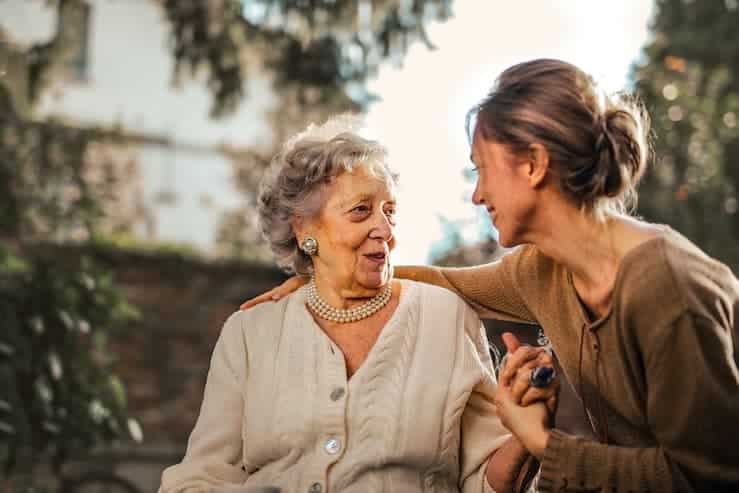When the elderly are socially isolated or live alone, they are much more likely to suffer falls. The most socially isolated seniors are 24 percent more likely to fall—and if they live alone, they’re 36 percent more likely to end up hospitalized from those falls.
If you have a loved one in a nursing home, it’s important to keep an eye on them. With nursing home staff still stretched thin due to the pandemic, your socially isolated loved one may be more vulnerable than usual.
Linking Loneliness to Fall Risk
A recent study linked loneliness (social isolation) to fall risks. While it seems logical that older adults living alone are more likely to fall since no one else is around to help, loneliness is another matter entirely.
The study differentiates loneliness and social isolation from seniors who live by themselves and found that there are several different explanations. “…[T]here is compelling evidence showing that social relationships increase access to health care and patient compliance with medications and therapies, which may further contribute to reducing the risk of falls.” Naturally, seniors who live alone and are socially isolated are the most at-risk.
Social Isolation and Falls in Nursing Homes
While nursing homes should ideally provide a safe, social environment for seniors, that’s not always the case. Ohio’s rampant nursing home abuse problem proves that just because an adult is in a home doesn’t mean that they’re being cared for properly. Residents may not receive assistance when they call for help, leading them to attempt physical activity they shouldn’t—for example, trying to get to the bathroom on their own.
Now that Ohio residents are getting vaccinated and nursing homes have relaxed their visiting policies, try to see your loved ones in person. Not only will it give you an opportunity to witness nursing home conditions firsthand, but your presence can be a valuable asset. As the study mentioned, that social relationship may encourage your loved one to be more careful and compliant with medication and treatments. In turn, they’re less likely to suffer falls or other issues.
Visiting the nursing home also gives you the chance to advocate for your loved one. If you notice a problem with their care, you can speak up on their behalf—and if the problem is particularly pernicious, you can consult with a nursing home abuse attorney to discuss their options. Get the legal help you need when you call Dworken & Bernstein today.







